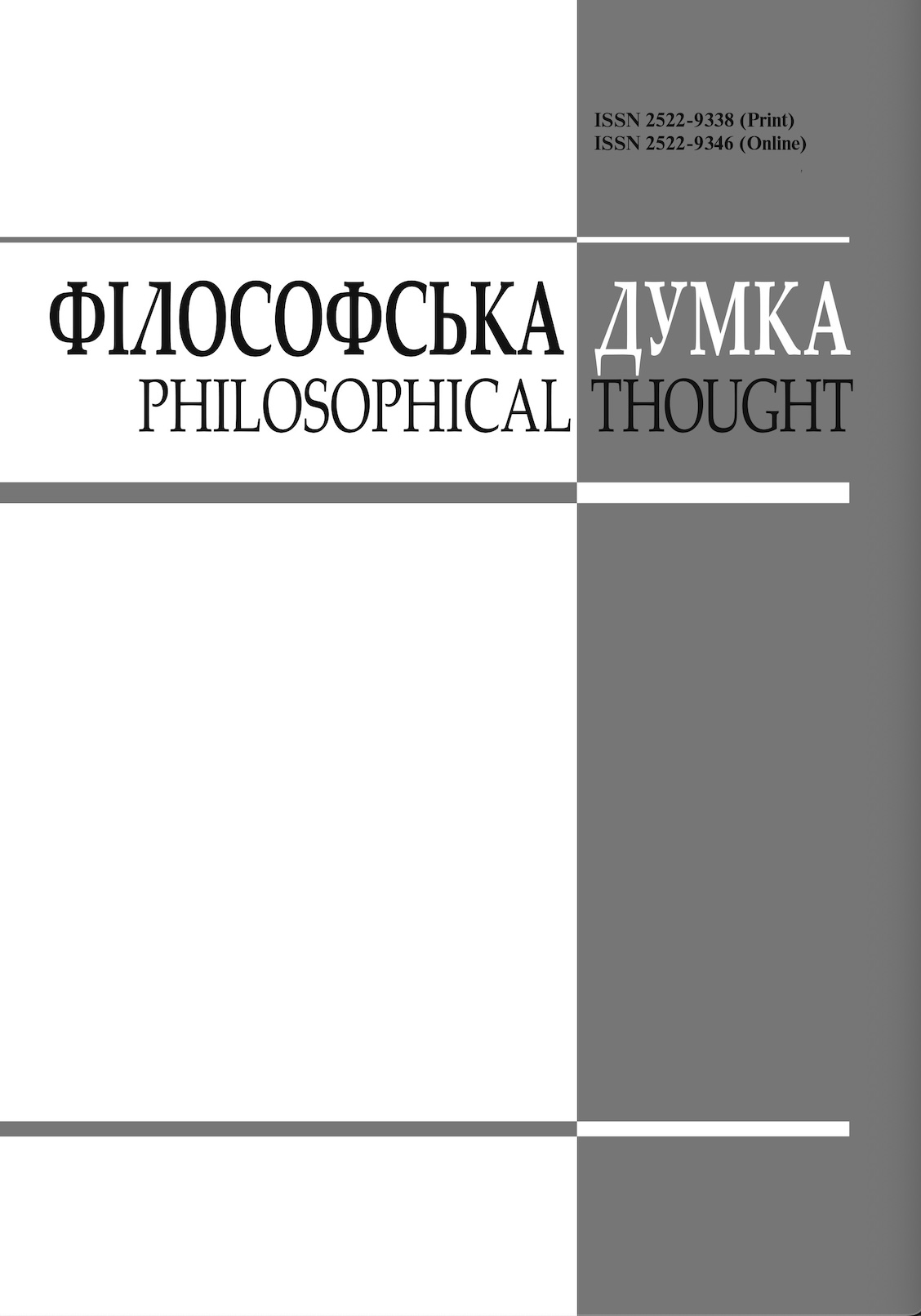WAR AND IDENTITY CRISIS: The problem of defining the subject
essay
Keywords:
identity, identity crisis, war, freedom, presumptionAbstract
The essay explores the impact of the Russian Federation's aggression against Ukraine on general worldview and anthropological categories. The author particularly addresses the issue of identity crisis among Russians who simultaneously oppose the war and consider themselves patriots. The legitimacy of applying formal definitions to certain subjects in public life is examined, alongside the reasons for the growing use of the concept of ‘identification’ as an attempt to appropriately replace formal definitions in discourse surrounding these subjects. The article argues that the notion of an 'identity crisis' takes precedence over the concept of identity itself, highlighting its genetic link to war as a social phenomenon.
Additionally, the author investigates the significance of legal categories such as presumptions in shaping intersubjective certainty and their relationship to the process of identifying individuals and human associations. Changes in the use of these concepts during wartime are also discussed
References
Andros, Ye.I. (Ed.). (2015). Specificity and Defining Dimensions of Modern Philosophical and Anthropological Knowledge (2015). [H.S. Skovoroda Institute of Philosophy, NAS of Ukraine]. Kyiv: Stylos.
Decombes, V. (2015). Hassle with Identity. [In Ukrainian]. Kyiv: Stylos.
Erikson, E. (1986 [1950]). Childhood and Society. 3 ed. Norton.
Kiriukhin, D.I. (2021). Discourses of Justice in a Historical Context. [In Ukrainian]. Kyiv: Stylos.
Downloads
-
PDF (Українська)
Downloads: 120
Published
How to Cite
Issue
Section
License
Authors who publish with this journal agree to the following terms:
- Authors retain copyright and grant the journal right of first publication.
- Authors are able to enter into separate, additional contractual arrangements for the non-exclusive distribution of the journal's published version of the work (e.g., post it to an institutional repository or publish it in a book), with an acknowledgement of its initial publication in this journal.
- Authors are permitted and encouraged to post their work online (e.g., in institutional repositories or on their website) prior to and during the submission process, as it can lead to productive exchanges, as well as earlier and greater citation of published work (See The Effect of Open Access).


